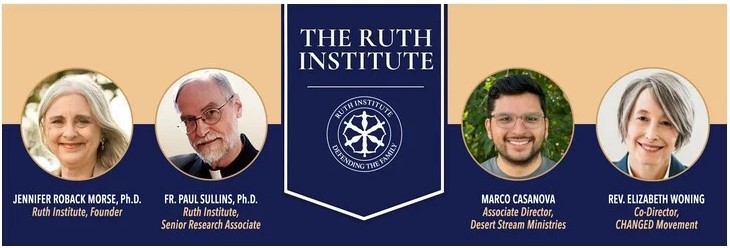by Jennifer Roback Morse // originally published at MercatorNet
Last fall, I debated same-sex marriage at a university in Florida. I argued that treating same-sex unions identically with marriage would lead to marginalizing fathers from the family even more than they already are. At the time, I viewed that as a long-term prediction. I did not realize I would be proven correct in less than a year.
Fertility clinics in the United Kingdom used to be required to consider the child’s need for a father before they agree to artificial insemination for unmarried women. But recently, that rule was revoked. Parliament did not want to imply that the children of legally married lesbian couples would somehow be at risk.
In the parliamentary debate, Conservative leader Iain Duncan Smith said the absence of a father had a “detrimental effect” on a child. Labour MP Geraldine Smith appealed to “common sense” in the need for a “father figure”. These advocates for fathers noted that lesbian couples and single mothers were still able to obtain fertility treatment.
But their opponents claimed that the rights of women take precedence over children’s need for fathers. Labour MP Emily Thornberry flatly stated, “[T]he important point is to give legal rights to lesbian couples and single women.”
So, the government of the UK cannot bring itself to say that children need fathers.
Making same-sex parenting equally acceptable as opposite-sex parenting requires that the public believe that mothers and fathers are interchangeable. A child will do equally well with two mommies, two daddies or one of each. This is the official position of the entire coalition that supports same-sex parenting. By legalizing same-sex unions (which have been legal in the UK since December 2005) the state declares that mothers and fathers are interchangeable. And when mothers and fathers are interchangeable, it is fathers who will be pushed aside.
This is for two reasons. First, the connection between fathers and children is intrinsically more tenuous than the bond between mothers and children. The social purpose of marriage always has been to strengthen the attachment of fathers to their children. Second, our social universe has already marginalized fathers from the family. Feminism teaches that men are unnecessary. Declaring that mothers and fathers are perfect substitutes can only reinforce that belief. The vanishingly small of gay male couples who adopt are not going to interrupt that. No-one will look at a pair of men parenting a child and say to themselves, “You see, it is just as I have always suspected. Children don’t need mothers.” Yet that is exactly the conclusion people draw from a pair of lesbians raising children together.
Public schools in the largest cities in Scotland have demonstrated this asymmetry by refusing this
month to allow children to make Father’s Day cards. They didn’t want the students without
fathers to feel bad. However, the schools have made no comparable ban on making cards for
Mother’s Day.
In Canada, where same sex unions have been legal since 2005, birth certificates reflect this marginalization of fathers. Each birth certificate in British Columbia has a place to mention the biological mother, but the official must check off whether the “other parent” is the “father” or “co-parent”. Likewise, Quebec’s birth certificates have a space for the name of the biological mother, and a space to check off whether “autre parent” is a mother or a father.
The drive for treating same-sex unions as the equivalent of marriage is not simply opening the institution of marriage to a new group of people. Nor does same-sex marriage simply provide public affirmation for those few unfortunate souls who experience same-sex attraction. I believe treating same-sex unions as interchangeable with marriage will change society in far-reaching and unpredictable ways, one of which will be the further marginalization of men from the family and from child-rearing.
Children need to be in relationship with their fathers; social science shows this beyond any shadow of a doubt. Teenage girls in fatherless homes face elevated risk for early sexual activity. Teenage boys are at risk for juvenile delinquency, crime and incarceration. Father involvement decreases the behavior problems of their children.
The movements for marriage, for responsible fatherhood, and for divorce reform are all social movements that seek to benefit children by having more of them spend more of their childhoods with both their parents, married to each other. I am proud to be actively involved in this effort. But all that effort can be undone by the stroke of a legislator’s pen or a judge’s opinion, instituting same-sex marriage.
Make no mistake: treating same sex unions as marriages is the government’s declaration that fathers are disposable. The activists and politicians who foist same-sex marriage on the public will have to answer for the plight of the next generation of fatherless children.


